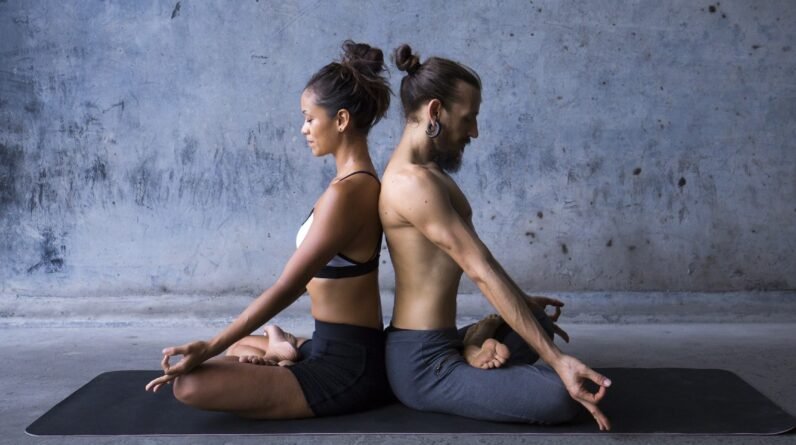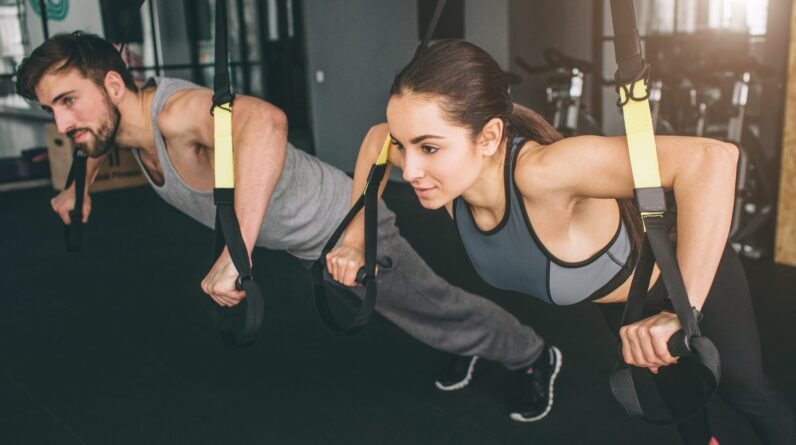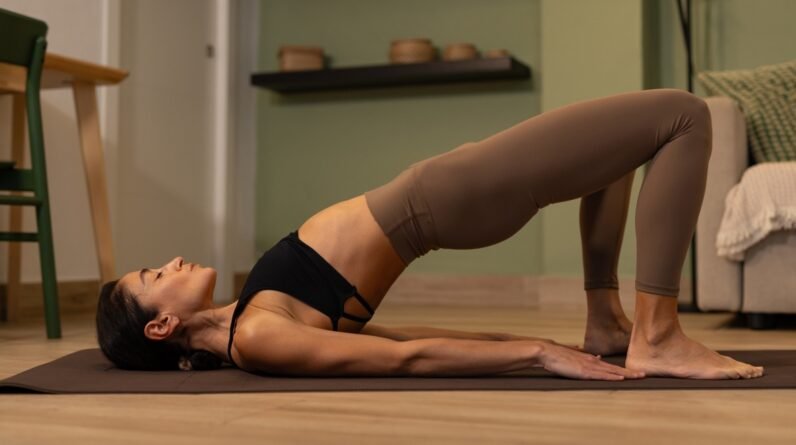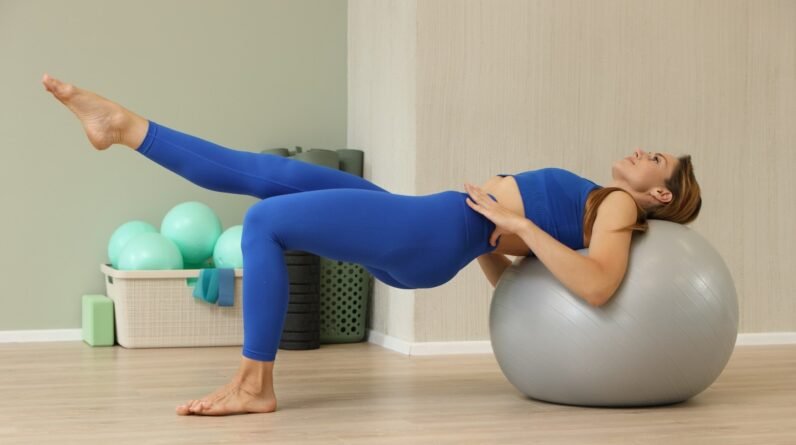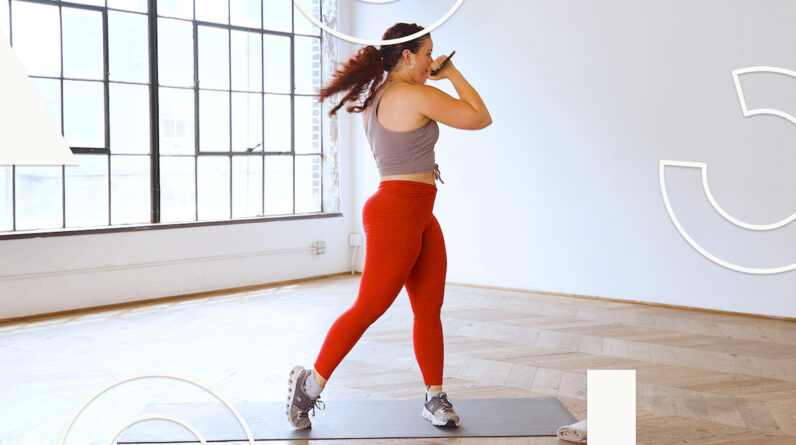
“Hit me” isn’t just something you say in a card game. We’ve all encountered someone wanting to show off their abs, who then braces their stomach for impact while you wallop them. In boxing, a solid core isn’t just about taking a hit, though. It’s also about having the power to throw a punch, which, incidentally, also comes from your core. That’s why you can count on a boxer’s abs workout to deliver a core routine that’s both challenging and functional.
“One of the first things you realize when you learn how to throw a punch is that the strength of your arms doesn’t matter nearly as much as the strength of your legs, core, and posterior chain,” says former professional boxer Ed Latimore. “The stronger your core, the more effectively you’re able to transmit the force generated by your legs.”
Your abs simply existing doesn’t do the job, though. The proper movement of your core is what translates the power from your legs into your punch.
“The path of transmission is the core, but the method of transmission is the twisting motion done by your core, and strong core allows you to effectively transfer force from your legs via the twisting motion of your internal obliques, serratus, and latissimus dorsi muscle,” Latimore says.
A strong core has defensive benefits, too. It “provides a better center of balance, which makes it easier to control your body quickly over the short distances that optimize slipping, bobbing, and weaving around punches,” says Latimore.
So how do you harness the power of the core? You’ll need the muscular infrastructure, but you also need to know how to engage the muscles, and put it all together into one smooth motion. That’s why in this new boxer’s abs workout from Rumble boxing instructor and Well+Good’s Trainer of the Month Club instructor Olivia Platania, some of the moves contain punches, or are exaggerated versions of things you’d already do in the ring—such as a squat (or duck) with a standing, twisting crunch.
The way to get the most out of these moves is by engaging your abs. Platania’s cue for this is to “pull your core into your spine.” But what does that actually mean?
“You’re going to hear me say that a lot today—‘belly button to spine,’” Platania says. “Not vacuum in, but I do want you to think, embrace it and protect your spine, right?” Understanding how to protect that spine (and thus, engage your core) comes down to tuning in to real-world scenarios in the ring.
“You want to think about creating a shield around yourself, right?” Platania says. “So if I get hit, I know how to tighten up and I know how to protect myself.”
Get that core ready to throw and take a punch with this 14-minute workout. You can follow along in the video above, or do the routine on your own with the description below.
A boxer’s abs workout
Format: A combination of standing, seated, and laying down abs moves done with the assistance of light weights.
Equipment needed: A place to lay down and two light weights. Platania uses brass knuckles, but if for some reason you don’t have a pair of those lying around, you can use small dumbbells, water bottles, cans of peas, or whatever you have on hand.
Who is this for?: Anyone looking for an abs workout to improve core strength.
Moves 1-3 are done with one light weight in each hand
1. Squat with standing twisting crunches (30 seconds)
- Stand upright with feet hip-width apart and bent arms up with fists by your face in a boxer guard position.
- Bend your knees and squat down.
- As you rise back up, lift the left knee up and off the ground, and twist down and toward the knee with your right elbow.
- Squat and repeat the twisting crunch on the other side.
- Continue squatting and alternating.
2. Hands raised march (30 seconds)
- Lift hands straight overhead.
- March in place raising your knees to hip level with thighs parallel to the floor
3. Chops (1 minute)
- Place your hands on your left hip as you come into a squat
- As you straighten out of the squat, take your hands across your body and up to the right over your head
- Return to starting position and repeat (30 seconds)
- Repeat on the other side (30 seconds)
Put down the weights
4. Shoulder taps (30 seconds)
- Come into a plank with straight arms on either your toes or your knees
- Lift your right hand and tap your left shoulder
- Replace right hand
- Repeat on the other side
- Continue alternating
5. Commandos (40 seconds)
- Stay in the plank position
- Come down onto your forearm on your right arm
- Come down onto your forearm with your left arm
- Push back up to a straight arm with your left arm
- Push back up to a straight arm with your right arm
- Continue alternating between high plank and forearm plank, switching the lead arm each time
6. Side plank (1 minutes)
- Lay on your side
- Lift up onto a bent forearm and feet with your hips raised
- Hold (30 seconds)
- Repeat on other side (30 seconds)
Repeat moves 1-6. Then pick the weights back up: Moves 7-10 are done with one light weight in each hand.
7. Half sit-up with ones and twos (30 seconds)
- Sit on the ground with your knees bent, heels touching the floor, and your torso lowered about half way down to the floor from an upright position
- Holding this position with your weights in your hands, alternate jabs and crosses
8. Tabletop heel taps (50 seconds)
- Come into a tabletop position, laying on your back with your knees bent at a 90-degree angle, shins parallel to the floor
- Lift your arms straight up in front of your chest, perpendicular to the floor
- Lower your right heel to the floor, then bring it back up into tabletop
- Repeat on the other side
- Continue alternating
9. Sit-up with ones and twos (50 seconds)
- Lay on your back with your knees bent and heels on the floor
- Lift your torso up into a sit-up
- At the top of the sit-up, deliver a jab-cross punch
- Lower back down
- Repeat
10. Dead bug (50 seconds)
- Lay on your back in a tabletop position with your arms lifted above your chest
- Lower your right arm back behind you while you straighten your left leg out and to the floor
- Come back to starting position
- Repeat on the other side
- Continue alternating


